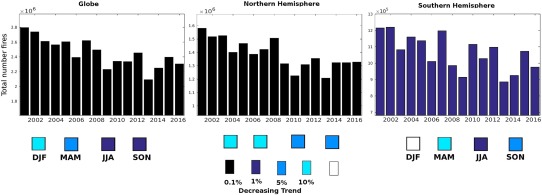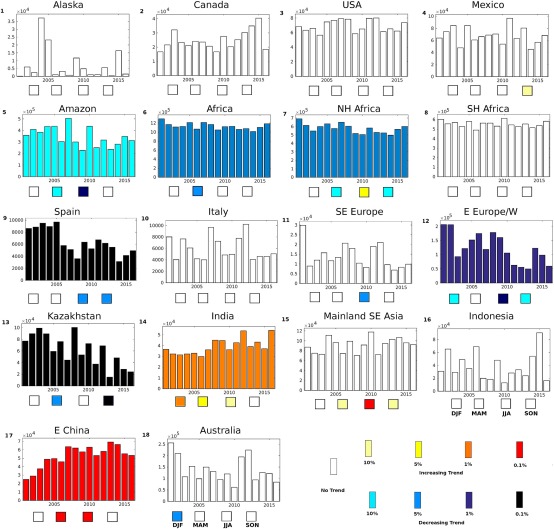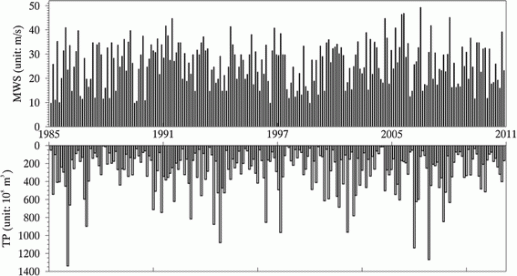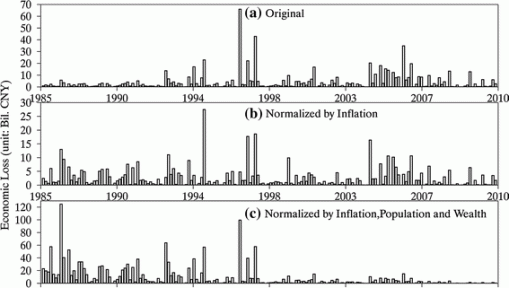"WSJ: Some Good News–About Disasters of All Things
Some Recent Papers I’ve Been Reading on Disasters and Extreme Weather
- Last week I had an op-ed in the WSJ on global disasters, available here
- Here is how I start:
- “In his posthumously published book “Factfulness,” the Swedish statistician Hans Rosling describes a paradox: “The image of a dangerous world has never been broadcast more effectively than it is now, while the world has never been less violent and more safe.” A case in point: natural disasters. The earth will always be volatile, but despite recent fires, volcanoes and hurricanes, humanity currently is experiencing a stretch of good fortune when it comes to disasters.”
- In it I observe the remarkable decline in lives lost to disasters over the past half century, a drop of 80%. There is still more to do, and vulnerabilities remain, but progress has been huge, and it is OK to say so.
- I also observe that losses (direct economic damage) have also decreased since 1990, when global data coverage allows for a reliable assessment. This too is good news.
- Disaster losses as a proportion of global GDP is an indicator to be tracked under the UN Sustainable Development Goals. I’ve got a paper on this topic presently under review.
- Earl, N., & Simmonds, I. (2018). Spatial and temporal variability and trends in 2001–2016 global fire activity. Journal of Geophysical Research: Atmospheres, 123(5), 2524-2536.
- “There is a very strong decline in global fires (stat sig at the 0.1% confidence level; hereafter p < 0.001), present in each season except Dec–Feb (p < 0.1)” [see figure below]
- Regional trends are also interesting: “most of these large‐scale regions of the world exhibit little change or decreasing in fire activity except India (box 14) and China (box 17—…), with a weak nonsignificant signal in Canada” [see figure below]
- I’ll offer a brief editorial comment on this paper. The contrast between what this data shows and the public statements by some prominent climate scientists is jarring. Fires are not more common, in fact the data indicates the opposite.
- Of the US the authors write: “”The mainland United States (box 3) displays no 2001–2016 trend in [active fires] … This is also the case for the satellite‐based [burned area] studies (Andela et al., 2017; Giglio et al, 2013), though BA has been found to be increasing in some surface‐based U.S. studies (see Doerr & Santín, 2016). This is surprising, as the economic costs of wildfire in the United States have risen substantially in recent decades and from 1992 to 2012, with anthropogenically ignited wildfires accounting for 84% of all wildfires.”
- The case of fires appears quite similar to that of tropical cyclones in which every visceral tragedy is exploited by a few prominent activist scientists and journalists to suggest that things are getting worse, when in fact the evidence indicates that the opposite is true.
- I have come across two new papers that seek to normalize economic losses from tropical cyclones in China.
- Chen, Wenfang, et al. (2018). Hazard Footprint-Based Normalization of Economic Losses from Tropical Cyclones in China During 1983–2015. International Journal of Disaster Risk Science, 1-12.
- This analysis finds that normalized losses declined over the period 1983 to 2015, see figure below.
- Ye, Y., & Fang, W. (2018). Estimation of the compound hazard severity of tropical cyclones over coastal China during 1949–2011 with copula function. Natural Hazards, 1-17.
- This paper looked at time series in maximum wind speed and total precipitation over the period 1985 to 2011, finding no trends. See figure below.
- The paper also presented data on normalized losses, also finding a decrease over the period of study, see figure below.
- The trends in normalized documented in these two papers are consistent with trends observed in other ocean basins around the world as well as the overall decrease in disasters losses as a proportion of global GDP.
- Boccard, N. (2018). Natural disasters over France a 35 years assessment. Weather and Climate Extremes.
- “the incidence of floods over mainland France is found to be stable over the last 35 years and even falling once we account for the heightened population pressure” [see figure below]
- “rates of forest fire destruction display a significative downward trend, the anthropogenic rate fell from about 5% to 2% (over the period 1973–2017) while the natural rate is about 100x smaller and likewise falling.”
- “The latter fact proves that the incidence of natural forest fires over the French mediterranean seaboard is receding over the last 44 years.”
- The bottom line? The scientific literature on disasters and climate change continues to be at extreme odds with frequent public representations found in the media and put forward by some leading scientists."
Saturday, August 11, 2018
The scientific literature on disasters and climate change continues to be at extreme odds with frequent public representations found in the media and put forward by some leading scientists
See Pielke on Climate #13. Excerpt:
Subscribe to:
Post Comments (Atom)







No comments:
Post a Comment
Note: Only a member of this blog may post a comment.